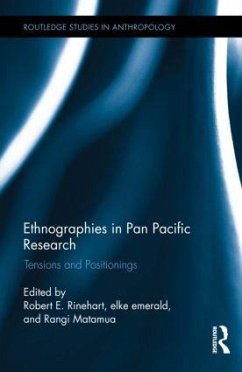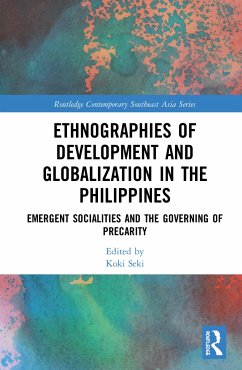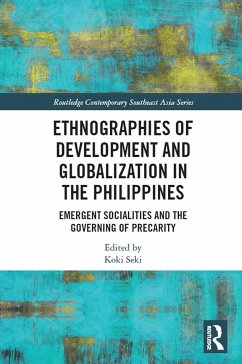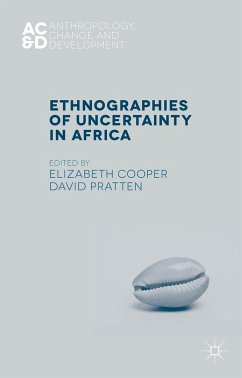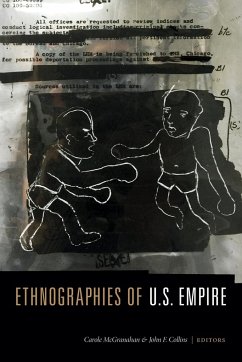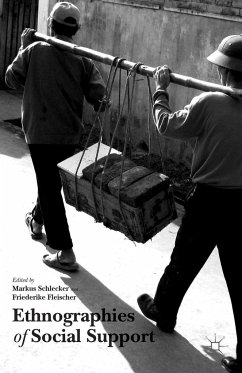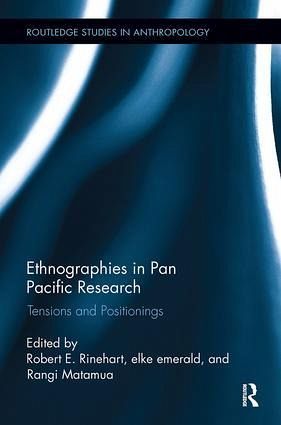
Ethnographies in Pan Pacific Research
Tensions and Positionings
Herausgeber: Rinehart, Robert E.; Matamua, Rangi; Emerald, Elke
Versandkostenfrei!
Versandfertig in 1-2 Wochen
50,99 €
inkl. MwSt.

PAYBACK Punkte
25 °P sammeln!
The book is about exciting ethnographic happenings in the vibrant and growing global interface which includes Australia, New Zealand, and some of the Asian geographical regions, as well as - more broadly - the global South. It explores ethnographic writing as culture(s) (re)produced, positionalities of authors, tensions between authors and others, multi-faceted groups, and as co-productions of these works. The contributors describe and discuss a variety of topical areas of interest, from Facebook to memory work, from children's sexuality to urban racism, from meanings of Indigenous knowledge t...
The book is about exciting ethnographic happenings in the vibrant and growing global interface which includes Australia, New Zealand, and some of the Asian geographical regions, as well as - more broadly - the global South. It explores ethnographic writing as culture(s) (re)produced, positionalities of authors, tensions between authors and others, multi-faceted groups, and as co-productions of these works. The contributors describe and discuss a variety of topical areas of interest, from Facebook to memory work, from children's sexuality to urban racism, from meanings of Indigenous knowledge to how communities can come together to retain what is valuable to themselves. The authors also manage to locate themselves and others (positionings) in the research hierarchies (tensions). This is a valuable guide to the effects of 21st-century ethnography on the qualitative research project.





